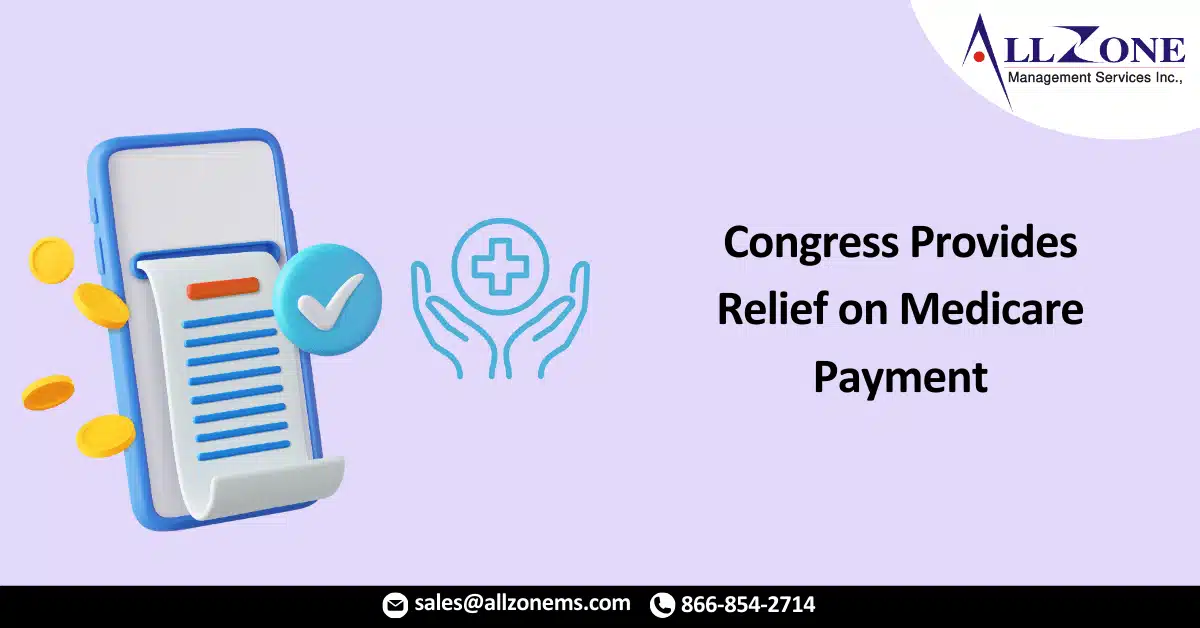The $1.4 trillion omnibus legislative package passed by Congress late Monday includes COVID-19 related relief for physicians, imposes new restrictions on surprise billing, and funds the government through fiscal 2021, which ends Sept. 30.
The legislation mitigates budget neutrality cuts that would have slashed physician Medicare payment rates by 10.2% and extends the moratorium on the budget sequestration that would have resulted in an additional 2% cut to physician Medicare payment.
There will also be a 3.75% pay raise across all specialties and payments listed in the final 2021 Medicare schedule covered by funds drawn from the U.S. Treasury general fund to the Federal Supplementary Medical Insurance Trust.
The bill calls for a 3-year suspension (through December 2023) of payments for the Healthcare Common Procedure Coding System code G2211, a CMS add-on code for complexity inherent to evaluation and management (E/M) visits. The G2211 code accounted for about $3 billion—or 3%—of spending in the Medicare payment schedule so the delay in implementing the code further reduces the budget-neutrality adjustment.
Taken together, this represents a significant win for physicians and the AMA estimates that most specialties will now see either a neutral or positive change in total Medicare payments for 2021. The impact for individual practices will depend on physician specialty and mix of services.
The budget sequester moratorium was scheduled to end Dec. 31 but is now extended to March 31, 2021.
Practices may also find relief in the expansion and extension of the Coronavirus Aid, Relief and Economic Security (CARES) Act’s employee retention tax credits until June 30, 2021.
In all, the nearly 5,600-page bill contains $900 billion for COVID-19 relief measures.
This includes $3 billion in new distribution requirements for the Provider Relief Fund and $1 billion in direct funds for the Indian Health Service.
Foundational improvements to coding documentation and payment for office-based and outpatient E/M services remain intact.
Improvements To Surprise Billing Reform
The bill, which awaits the president’s signature, incorporates the latest iteration of the “No Surprises Act” that includes several improvements over the proposal being circulated last week on Capitol Hill, which was opposed by the AMA.
These improvements include:
- Clarification that an upfront, initial payment or notice of denial is required from health plans to the physician.
- An increase in the time for a physician to pursue independent dispute resolution (IDR), from two to four days.
- Prohibition against considering public program rates like Medicare, Medicaid, and Tricare during the IDR process.
- Elimination of problematic timely billing provisions.
More detail is provided in a five-page AMA summary of the bill.
Find out how physicians took their message on surprise billing to Capitol Hill earlier this year.
Physician Grassroots Activated
The AMA Grassroots Network had been activated on both issues and physicians were letting Congress know that government price fixing was not the answer to the surprise billing problem and that during the COVID-19 public health emergency was a bad time to cut Medicare physician payments.
Due to constraints created by the COVID-19 pandemic, physicians have averaged a 32% drop in revenue since February, according to a recent AMA survey.
“Physicians’ practices are currently financially stressed more than any time in our nation’s history,” AMA Executive Vice President and CEO James L. Madara, MD, wrote in a Dec. 15 letter to congressional leaders.
For More Information: https://www.ama-assn.org/delivering-care/patient-support-advocacy/congress-provides-relief-medicare-payment-passes-surprise

